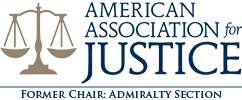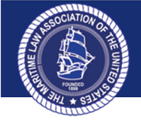What is a Personal Injury Lawsuit?
Personal injury lawsuits arise, as the name implies, when someone is injured. The underlying personal injury may either be physical or emotional, and it can arise from a variety of sources or types of conduct. Some of the most common types of personal injuries that give rise to legal liability on the part of the wrongdoer include slip and fall cases, automobile accident cases, assaults and batteries, medical malpractice actions, and products liability lawsuits. The general goal of personal injury actions is to assign blame-or liability-for the injury to the parties whose actions caused it and to require them to compensate the injured person for the losses sustained. If you or someone you know has been injured by the actions of another, it is essential that you seek legal counsel from an experienced personal injury attorney at once so that you can preserve your rights and protect your future.
Personal Injury Damages
Personal injury lawyers can help ensure that their clients receive the maximum amount of damages recoverable by law. Some of the items for which injured parties are legally entitled to compensation include past and future lost wages; past and future medical expenses; damages for both physical and emotional pain and suffering, again both past and present; and damages for disfigurement. Sometimes, a close family member of the injured person, such as his or her spouse, may also be entitled to damages, often referred to “loss of consortium damages,” which are intended to compensate the loved one for the loss of the injured party’s services and companionship.
Other kinds of damages that may be awarded, depending on the laws of the state in which the lawsuit is brought and the facts of the particular case, include “hedonic damages,” which are awarded to compensate the plaintiff for the loss of enjoyment of activities that he or she once valued but can no longer participate in as a result of the injuries suffered, such as the inability of a person injured in a car accident to continue playing softball on a recreation league that was a big part of his or her life. Punitive damages are awarded when the defendant’s conduct was particularly egregious and the court or jury determines that the defendant should be punished by paying an amount above and beyond the plaintiff’s actual damages, which awards will also serve to deter others from engaging in similar wrongful conduct.
“Legal Causation” of Personal Injuries
Not every injured plaintiff is entitled to recover damages for the injury he or she sustains. Besides the injury, the plaintiff must also establish, through credible and relevant evidence, that the defendant is legally responsible for his or her injuries. In order to do so, the plaintiff must present proof of causation both in terms of actual, factual causation and with regard to “proximate,” or legal, causation. Whether legal causation is established depends on the facts and circumstances of the particular matter in question.
In some personal injury actions, legal causation may be established if the plaintiff can show that the defendant engaged in intentional conduct, meaning that the wrongdoer intentionally or purposefully harmed the plaintiff or knew that the conduct in which he or she engaged gave rise to a substantial likelihood that harm would result. Other personal injury actions are based on a looser concept of fault called negligence. Under the negligence theory, a defendant is held liable for the results of actions, or inaction, when an ordinary person in the same position should have foreseen that the conduct would create an unreasonable risk of harm to others. Still other types of personal injury actions are based on strict liability, which is a no-fault system under which liability may attach regardless of the fault of the various parties, including the plaintiff. Strict liability may be applied in products liability cases, such as when a manufacturer or seller of a defective product puts that product into the stream of commerce and users are injured.
The defendant can be held liable as a result of either the actions that are taken, or actions that are not taken. A driver who fails to stop at a red light and hits another vehicle, injuring the driver and/or passengers therein, is liable based on her negligent acts, for example. And a property owner who fails after a reasonable time to clear the ice and snow from the front steps of a business open to the public may be liable for his inaction if a patron falls and breaks her leg when attempting to enter the premises.
Personal Injuries
In some situations, the defendant’s conduct, while questionable, may not rise to a level of culpability that entitles the plaintiff to recover damages. If, for instance, a plaintiff knowingly and willfully chooses to encounter a known hazard, the law provides that he or she has “assumed the risk” of injury and therefore the defendant is not liable. The assumption of the risk theory may apply, for example, in a case in which the plaintiff engaged in a friendly game of tackle football and another player broke his arm; in such a case, the plaintiff may be unable to recover for his injuries because he knew of the risks inherent in the game and willingly chose to encounter them. Plaintiffs may also be denied damages in other personal injury cases if their subjective belief about the situation does not match an objective “reasonable person” standard. For instance, if a defendant approached the plaintiff and stated, “If I can’t borrow your new convertible for my trip to Florida, I just may beat you up,” it is likely that no actionable assault occurred due to the fact that there was no immediate threat of harm that would have caused reasonable apprehension in the plaintiff.
Other possible defenses to personal injury claims include, to name just a few:
- the statute of limitations, which is the law setting forth the time period in which the lawsuit must be initiated
- sovereign immunity, which provides that certain government officials are immune from suit for their conduct, since if they were constantly subject to litigation for all of their acts they would be unable to perform their duties
- intentional misuse of a product in a products liability case
- and contributory or comparative negligence, in which case the defendant argues that the plaintiff’s own conduct caused, or at least partly caused, his or her injuries.
A seasoned veteran of personal injury lawyer can explain these and other defenses and determine whether they apply to a particular case.









